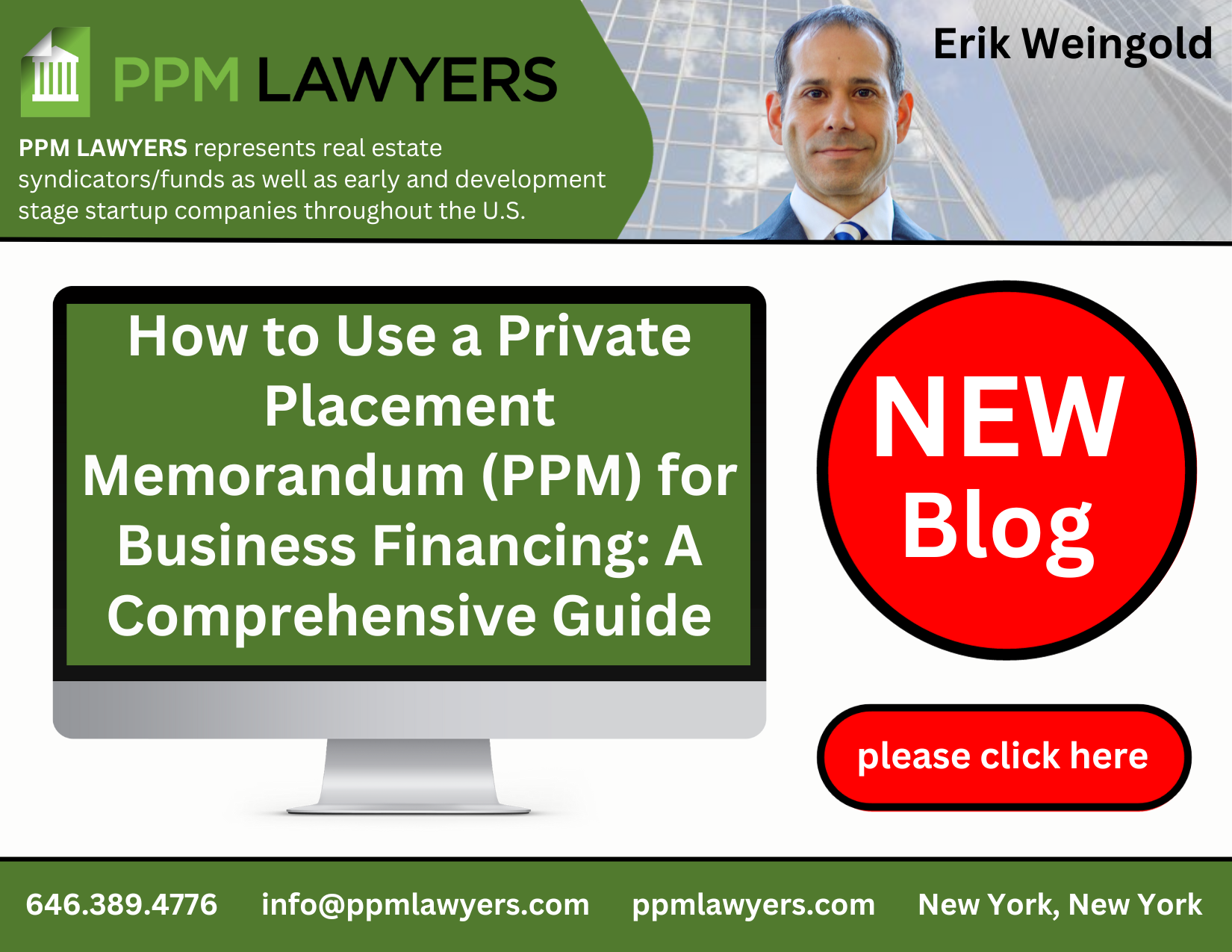When it comes to raising capital for your startup, small business, investment fund, or real estate fund, navigating the labyrinth of legal requirements and investor expectations can be overwhelming. One essential tool in your fundraising arsenal should be a well-drafted Private Placement Memorandum (PPM). This legal document not only mitigates risks but also provides a structured framework for presenting your investment opportunity. In this comprehensive blog, we’ll explore how a PPM can empower you to efficiently raise capital under Regulation D or Regulation A offerings.
What Is A Private Placement Memorandum (PPM)?
A Private Placement Memorandum (PPM) is a legal document that outlines the terms and conditions of an investment. It provides potential investors with material information about the business, its operations, financial status, legal obligations, risks, and more. Utilizing a PPM in your capital-raising efforts enables you to comply with the law while presenting your investment in a professional and comprehensive manner.
Why You Need An Attorney-Drafted PPM
Many entrepreneurs ponder whether they can write a PPM themselves or use a templated version to cut costs. While the regulations may not explicitly demand a professionally-drafted PPM, trying to go the DIY route or using a one-size-fits-all template is not advisable. Here are a few compelling reasons why:
Expertise And Compliance
Only an experienced PPM lawyer can ensure that your PPM is compliant with both state and SEC regulations.
Risk Mitigation
A well-drafted PPM minimizes your legal risks by providing accurate, comprehensive disclosures.
Professionalism
An attorney-drafted PPM reflects the seriousness and professionalism of your venture, making it more appealing to sophisticated investors.
Components Of A Private Placement Memorandum
- Executive Summary: A snapshot of your investment opportunity.
- Terms of the Offering: Detailed information about the structure of the investment.
- Business Description: An in-depth look into what your business does.
- Management Team: Credentials of the executives and board members.
- Market Analysis: Data and metrics about the market you operate in.
- Financial Projections: Expected revenue, expenses, and profitability.
- Risks and Disclosures: Legal and business risks associated with the investment.
How To Use A PPM To Raise Capital
For Startups And Small Businesses
- Early-Stage Funding: Utilize your PPM to secure angel investment or venture capital.
- Strategic Partnerships: Attract partners who can bring not just capital but also value to your business.
- Friends & Family: Ensure that your friends and family get full and clear disclosure.
- Private Investors: Accredited investors throughout the U.S. and abroad can invest if you have a properly drafted and structured PPM.
For Real Estate Funds And Syndications
- Property Acquisitions: Use a PPM to raise capital for buying new properties.
- Portfolio Expansion: Grow your real estate fund by attracting accredited investors or institutions.
For Investment And Crypto Funds
- Asset Diversification: Outline different asset classes to attract a broad range of investors.
- Compliance: Use the PPM as a compliance tool for SEC and state notice filings.
Conclusion
Having a well-drafted Private Placement Memorandum is essential for anyone looking to raise capital through a private placement under Regulation D. It serves as both a legal safeguard and a detailed business plan that can greatly assist in attracting sophisticated investors.
For those seeking professional guidance and comprehensive services including drafting PPMs, investor questionnaires, subscription agreements, LLC operating agreements, and handling SEC and state notice filings, consulting an experienced PPM law firm specialized in these areas is crucial.
By leveraging a quality PPM, you are not just complying with the law; you’re setting your business apart with a compelling and professional investment opportunity.
Remember, when it comes to successful capital raising, the right legal documents and counsel can make all the difference. Feel free to reach out for expert advice tailored to your specific needs.
Disclaimer: The information in this blog post is for general informational purposes only and should not be construed as legal advice. Consult with a qualified attorney for advice regarding your specific situation.


